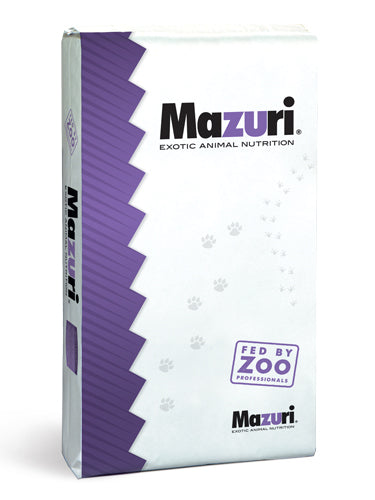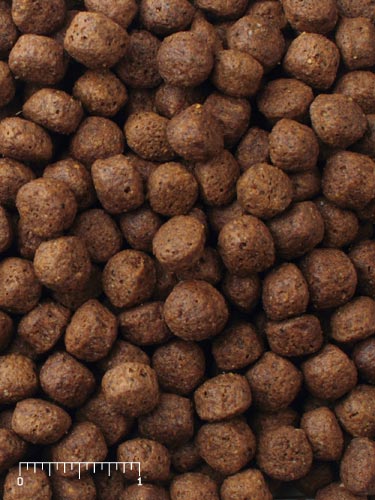Every exotic animal deserves the right nutrition
| Crude protein not less than Crude fat not less than Crude fiber not more than Moisture not more than Ash not more than | 18.00% |
Ground Brown Rice, Dehulled Soybean Meal, Dried Beet Pulp, Dried Apple Pomace, Poultry Fat Preserved with BHA, Porcine Animal Fat Preserved with BHA and Citric Acid, Ground Corn, Ground Soybean Hulls, Dicalcium Phosphate, Corn Gluten Meal, Natural Poultry Flavor, Brewers Dried Yeast, Calcium Carbonate, Salt, Whey, Soybean Oil, Taurine, Dried Egg Product, Soy Protein Concentrate, Pyridoxine Hydrochloride, Potassium Chloride, Choline Chloride, L-Lysine, Cholecalciferol, Biotin, DL-Alpha Tocopheryl Acetate (Form of Vitamin E), Vitamin A Acetate, Menadione Sodium Bisulfite Complex (source of Vitamin K), Iron Polysaccharide Complex, Ethoxyquin (a Preservative), Calcium Pantothenate, Folic Acid, Thiamine Mononitrate, Riboflavin Supplement, Nicotinic Acid, Vitamin B-12 Supplement, Zinc Sulfate, Manganese Sulfate, Copper Sulfate, Zinc Proteinate, Manganese Proteinate, Ground Rice Hulls, Copper Proteinate, Cobalt Carbonate, Cobalt Proteinate, Sodium Selenite, Ethylenediamine Dihydroiodide.
Note: This is a specialized diet for maned wolves only.
- Change the animal's diet gradually by mixing this diet with the current diet.
- Increase the proportion of this diet each day until the animals are completely switched over.
- The amount of food consumed will vary with the animal’s level of activity, physiological state, and environment. Active animals may require more feed to maintain condition.
- It is recommended that the Maned Wolf SSP Nutrition Advisor be a primary contact for any feeding questions.
- Always provide plenty of fresh, clean water.
- Thoroughly wash feed and water bowls on a regular basis. It is always good practice to wash hands thoroughly after feeding and/or handling animals.
- This diet is not for human consumption.
Storage Conditions
For best results, reseal the bag between uses or store contents of open paper sack in container with sealing lid. Store in a cool (75⁰F/24⁰C or colder), dry (approximately 50% RH) location free from rodents and insects. Do not offer moldy or insect-infested feed to animals as it may result in illness, performance loss or death. Freezing will not harm the diet and may extend freshness. Use within 1 year of bag manufacturing or "Best if Used By" date.
Ask Our Experts
Get nutrition advice you can trust from experts who understand the unique nutritional needs and behaviors of your exotic animals.
Get Advice
